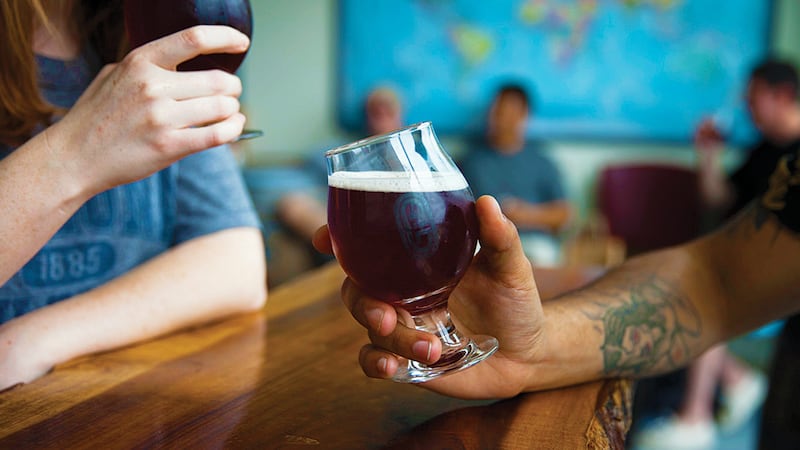De Garde is at the mercy of the winds.
The little brewery by the blimp dock in the charmless coastal town of Tillamook is one of only a handful of breweries in the world that makes all of its beer wild, using a coolship and no brewer's yeast. Basically, the brewery cooks its grains and then pumps the starchy wort into a massive metal trough shaped like a cake pan, exposing it to the wild bacteria that will ferment it into alcohol.
When it's bad, it's not good—astringently sour, with a one bitey note. Despite brewmaster Trevor Rogers' efforts to layer up the flavors and blend out the rough edges by combining vintages and barrels, and despite the rapturous response beer traders give everything De Garde does, plenty of its beers stab the tongue with sharp pricks of sour.
But when it's good? Well, it's great.
That's created a massive following that's allowed the brewery to sell about 95 percent of its beer directly out of the tasting room—even though very little of it goes to its working-class town of 5,000.
It's also why we've been boosters of De Garde since its earliest days, tapping Bu Weisse as one of our top 10 beers back in 2014.
And it's also why we were so stoked on Lee Kriek, a 7.2-percent sour red ale aged in oak with cherries, which we tried at the taproom last spring.

That beautifully rosy pink beer sucked the sweetness and color from the cherries, balancing it with an earthy funk and a lightly woody top note.
The secrets to making a kriek this good are many, but one of them is the hops. Namely, the use of aged hops to bitter it, like the Belgian masters do. While typical breweries want potent hops full of oils, Rogers looks for light bitterness, and aims to avoid the flower's preservative qualities.
"Most of the hops we use are aged hops, which generally are trash to most people," owner Linsey Rogers says. "We like that lower alpha acid to create our beer—the higher the alpha acid, the harder it is for the microbes to work."
We love hops, sure. But when it comes to taking care of the microbes, we're hoping Rogers can do everything in his power to keep them happy. Because when the winds are right, and when the bugs in the coolship are happy, there's something truly magical about his beer.
Welcome to the 2017 Portland Beer Guide
This Year's Guide Is Dedicated to Dean Pottle
An Oral History of the Horse Brass
The Best Portland Bars for Hardcore Bar Geeks | Portland's Best Cider Bars | These Are the Bars in Portland Where We Get Our Beer to Go | Where to Get Crowlers in Portland | Big Beer Halls Where You Can Drink With Half of Portland | The Six Best Spots to Take Little Ones For a Little Nip | Warm & Cozy Beer Caves | Portland Spots Where Great Food and Beer Come Together | Tap a Belgian or German at These Portland Bars

